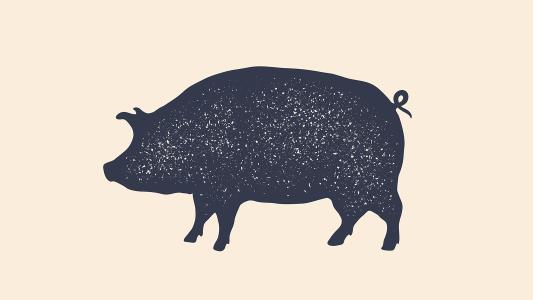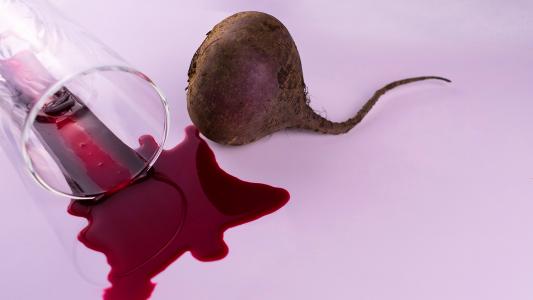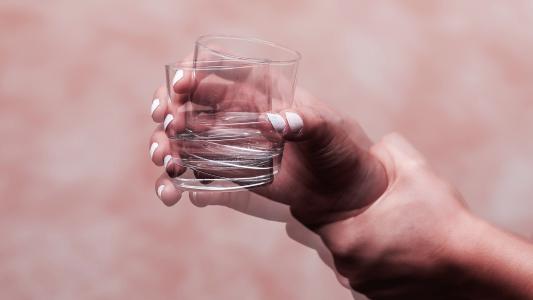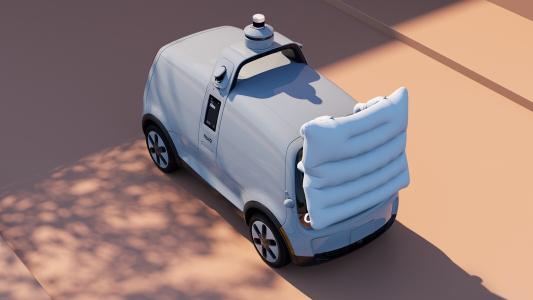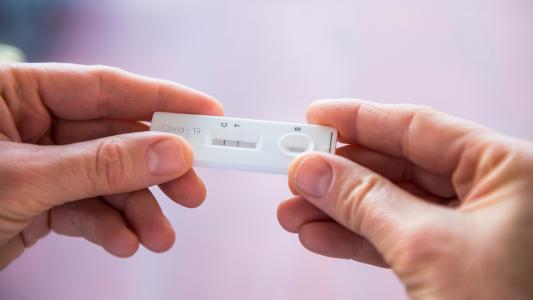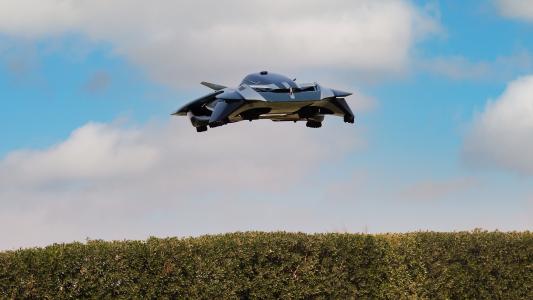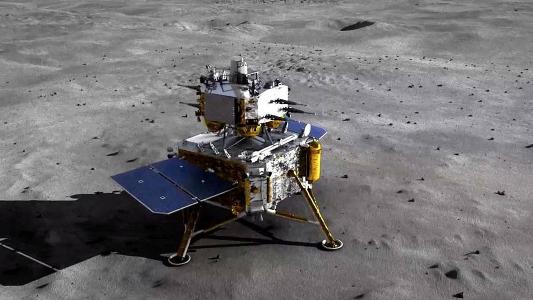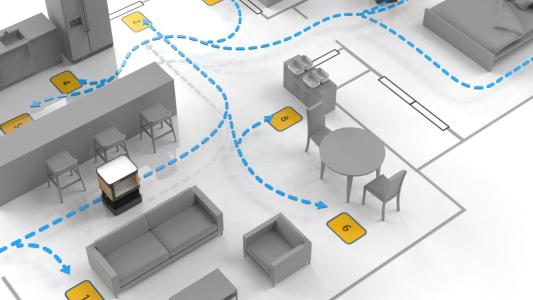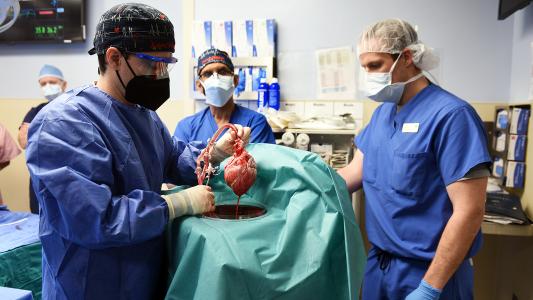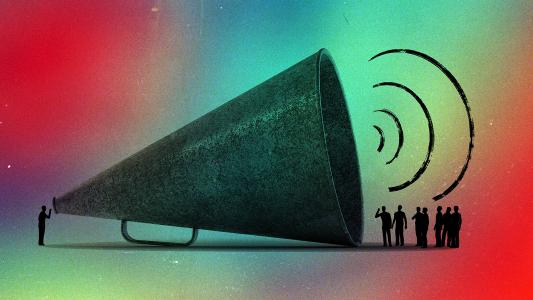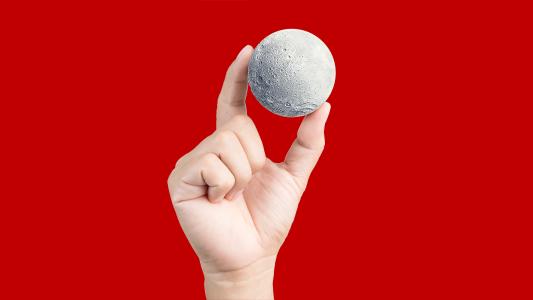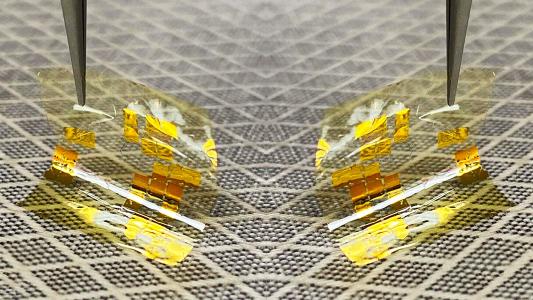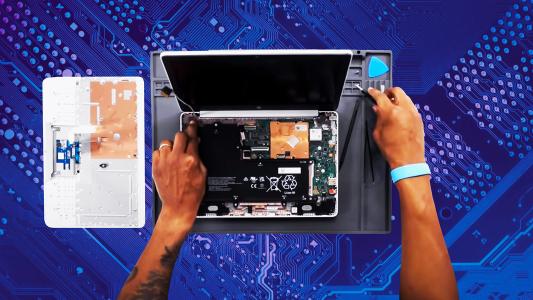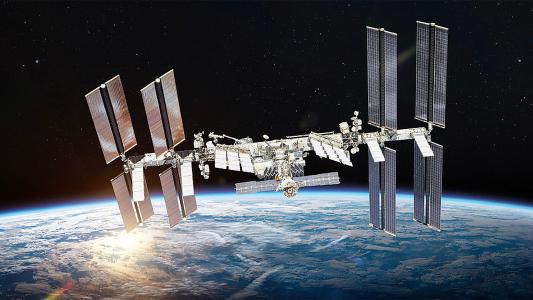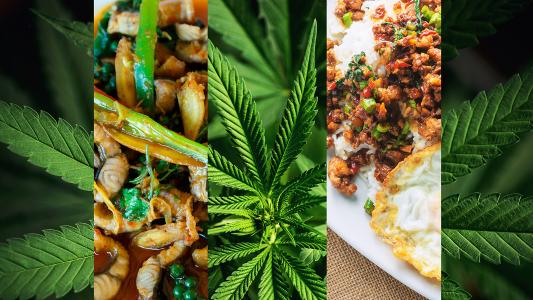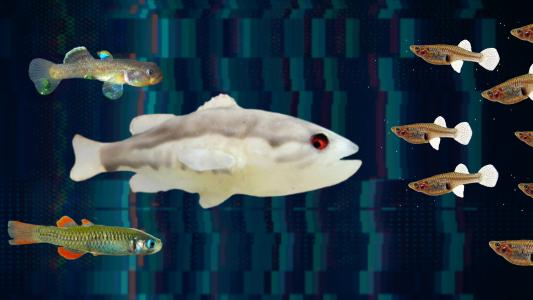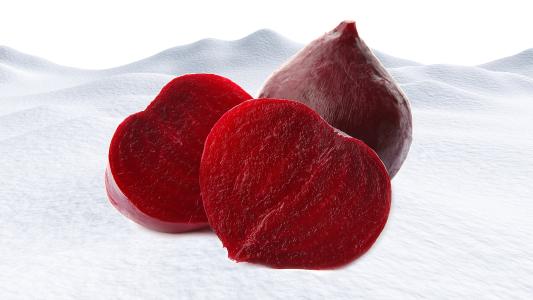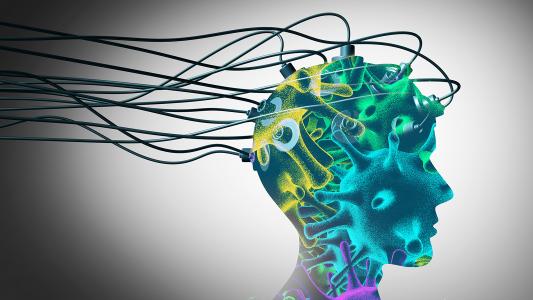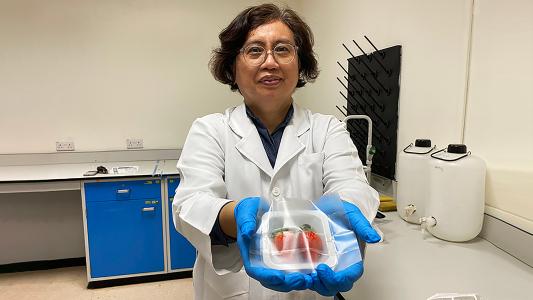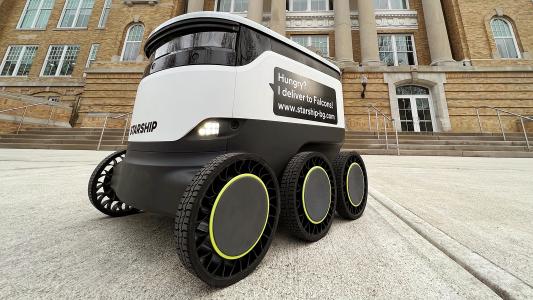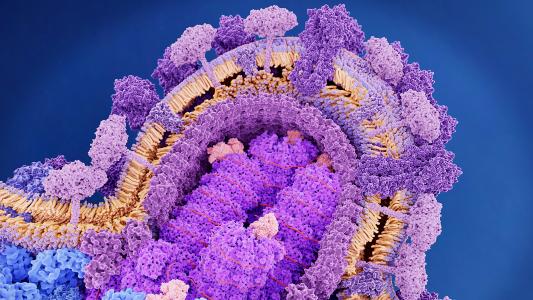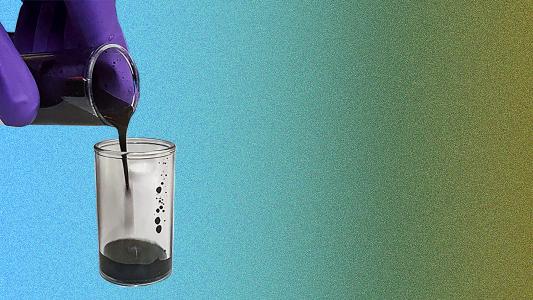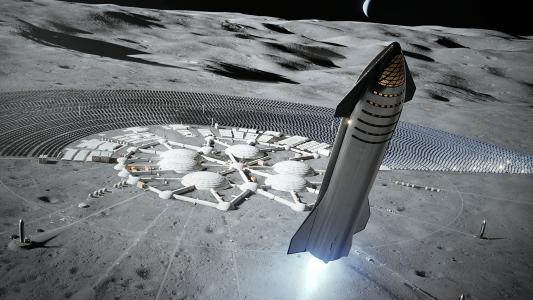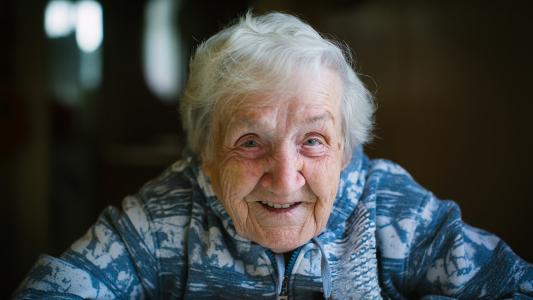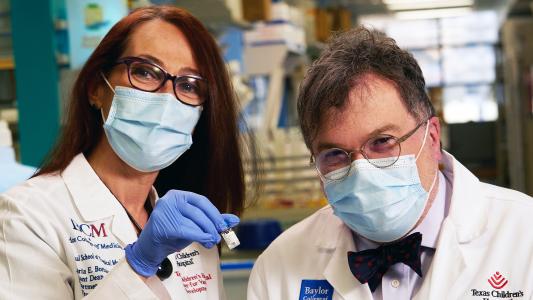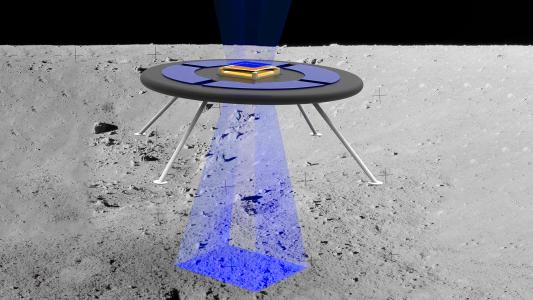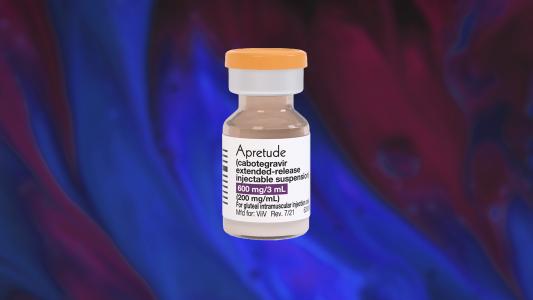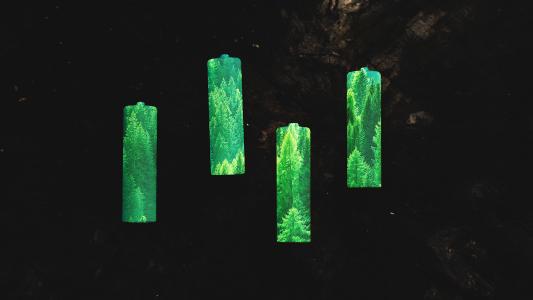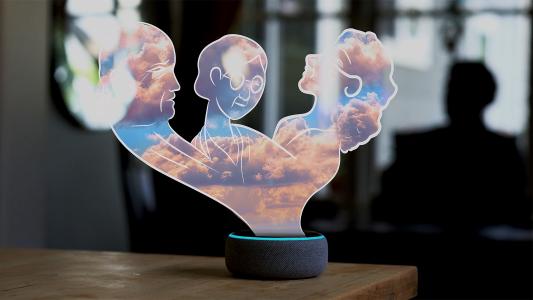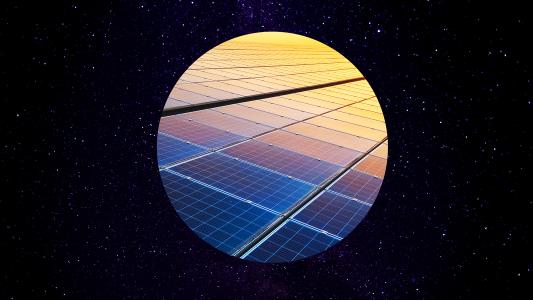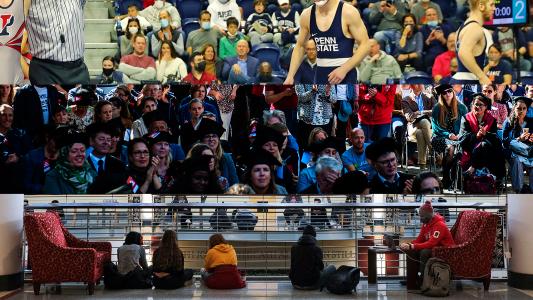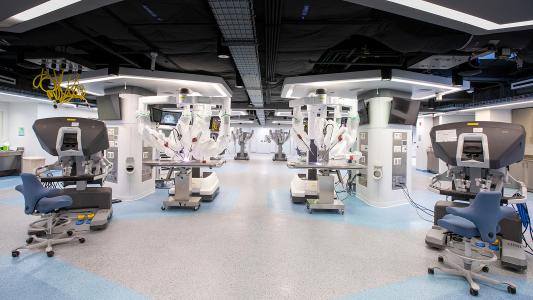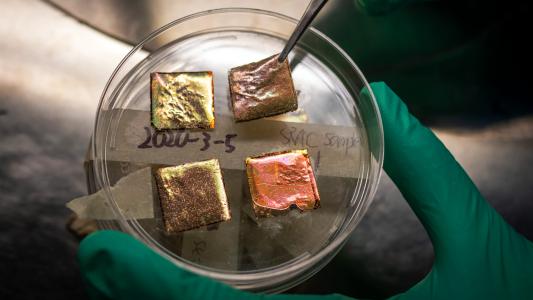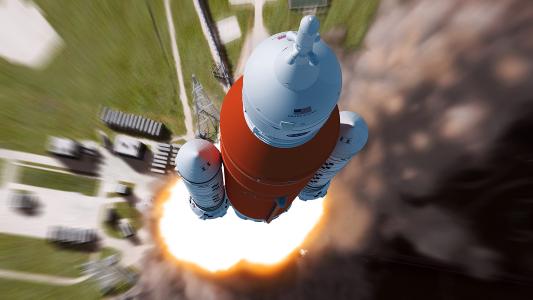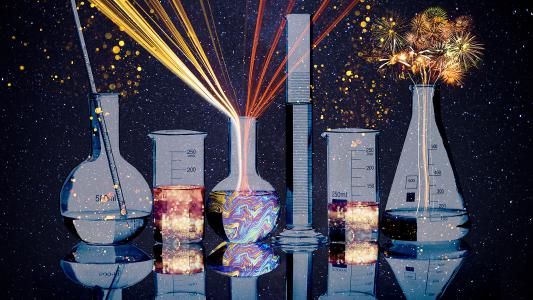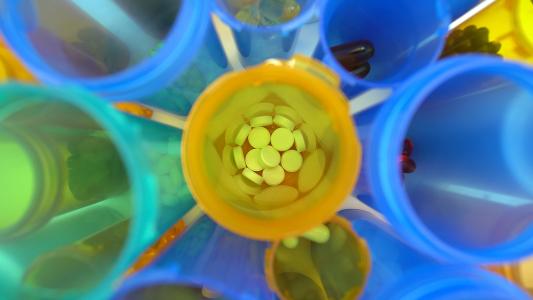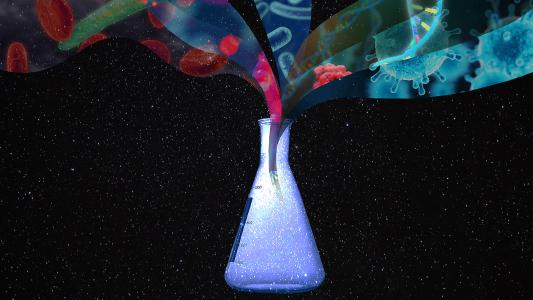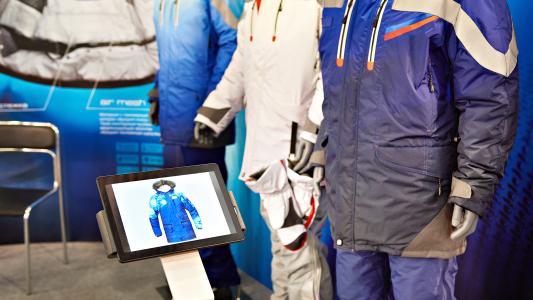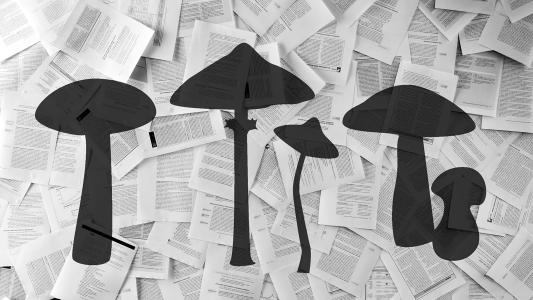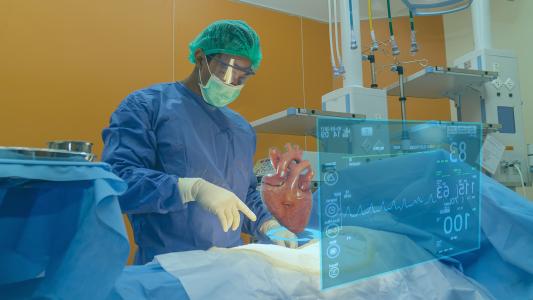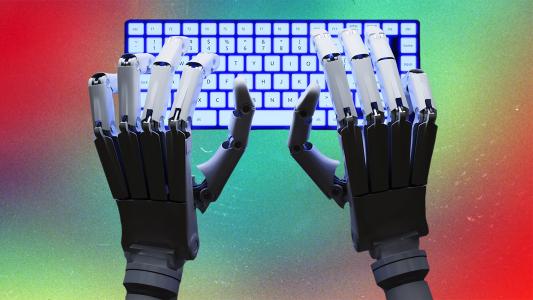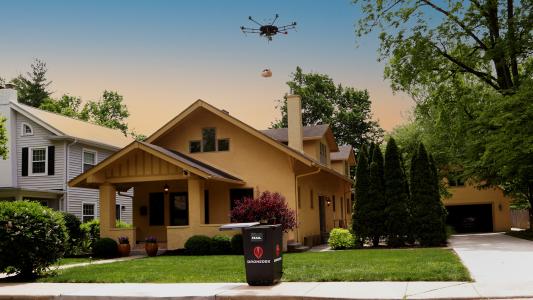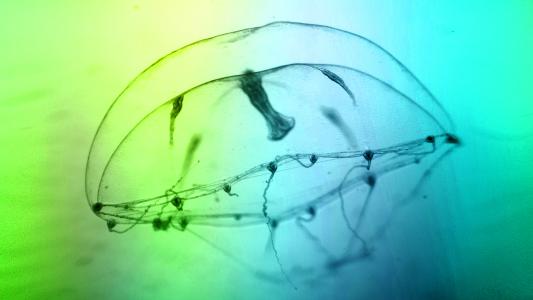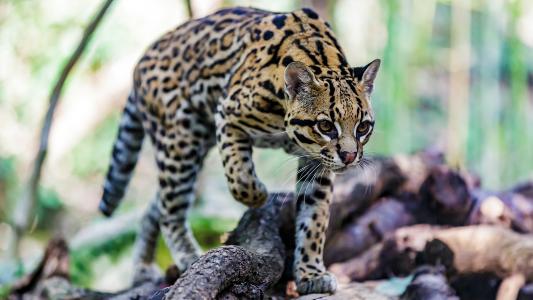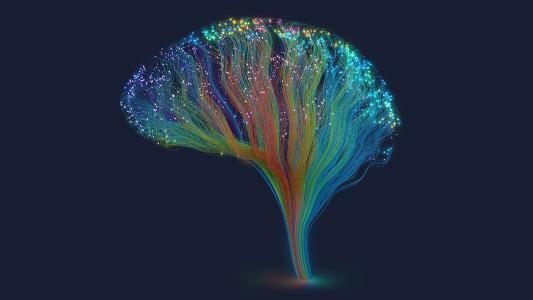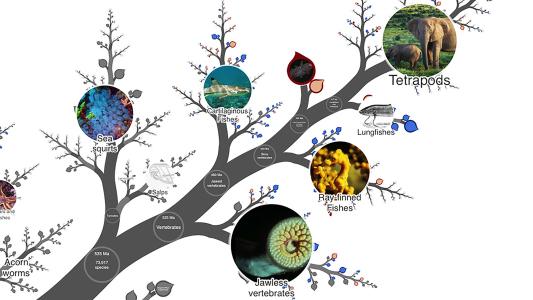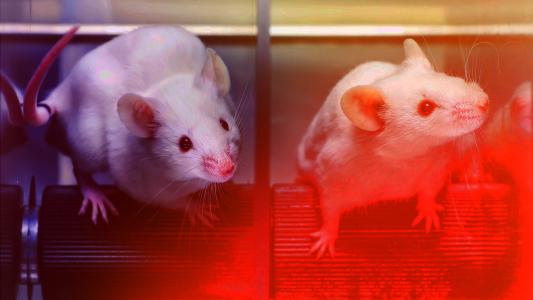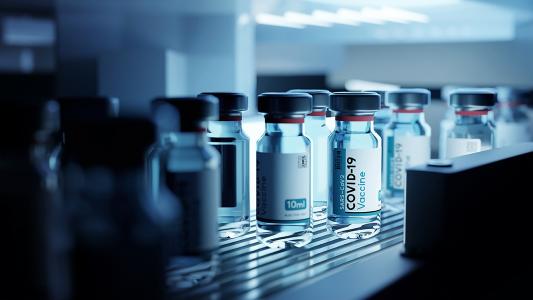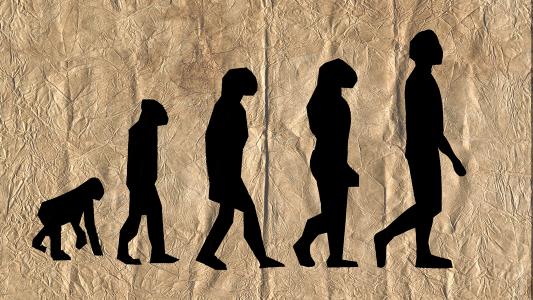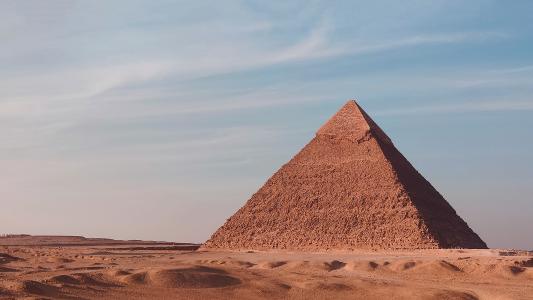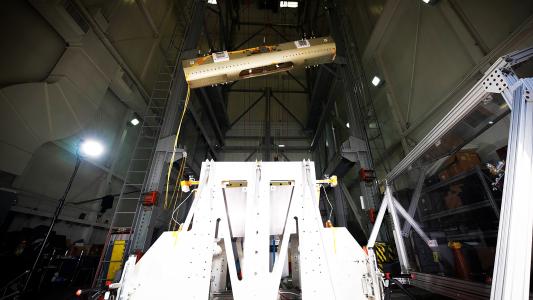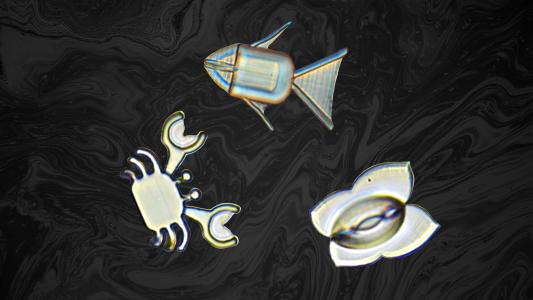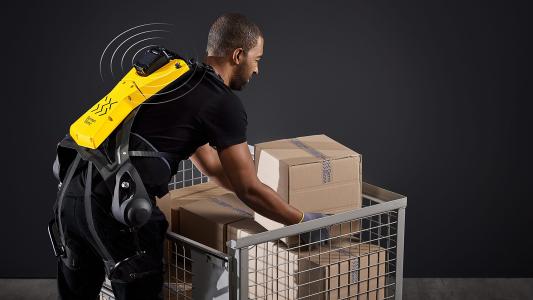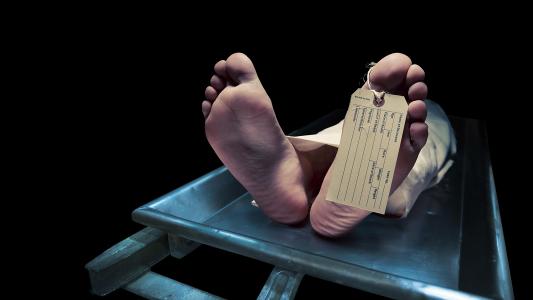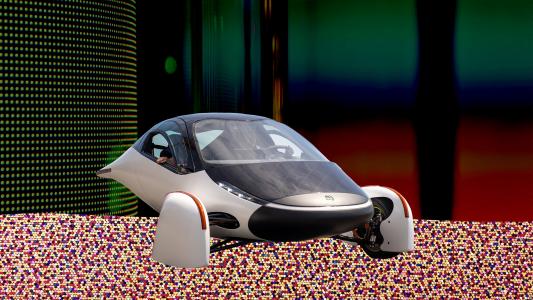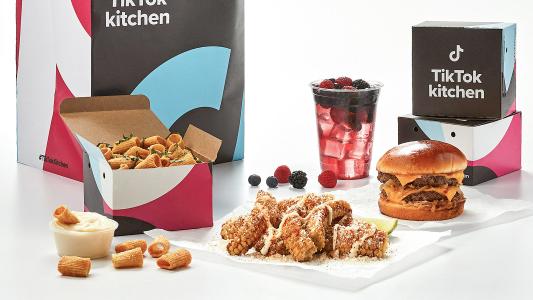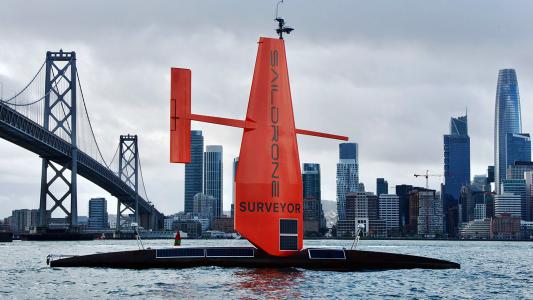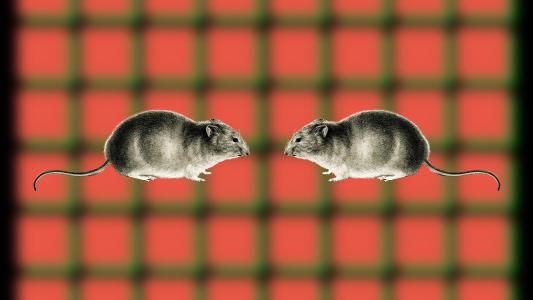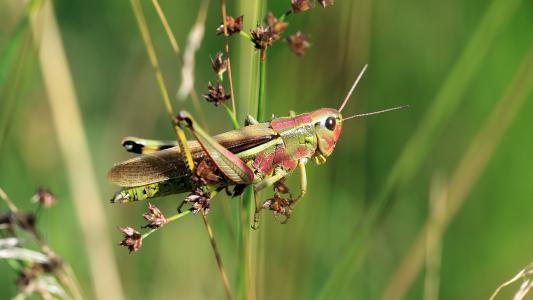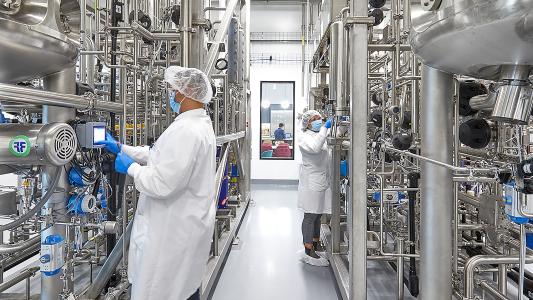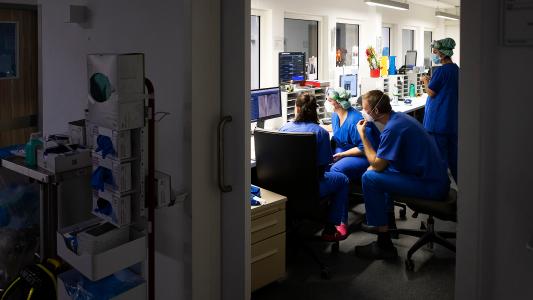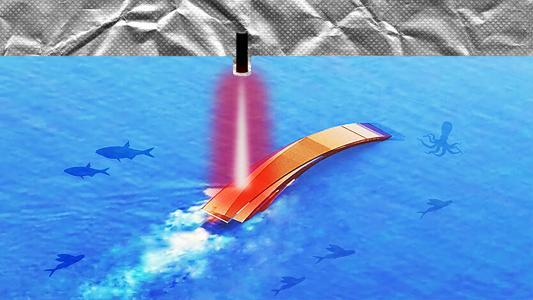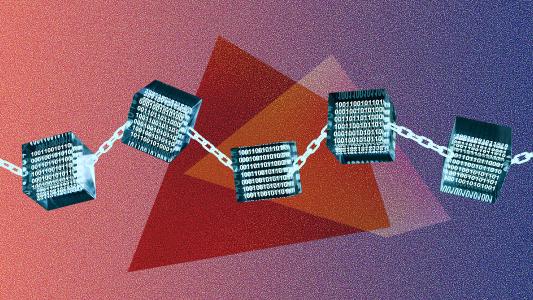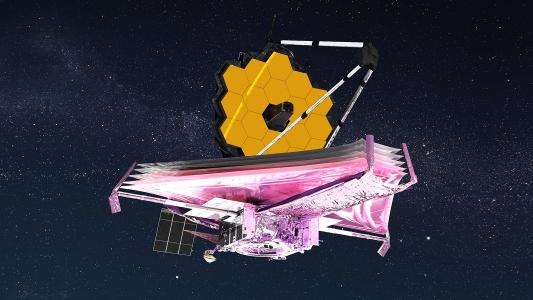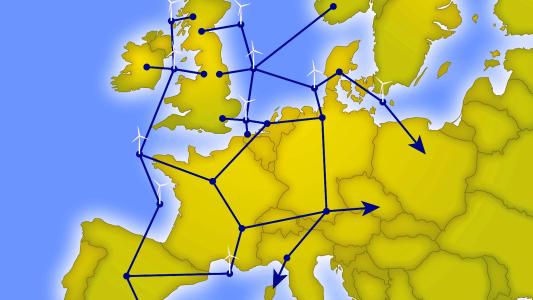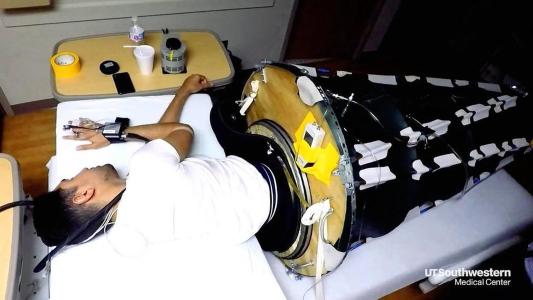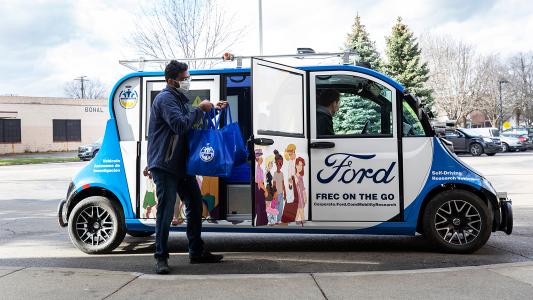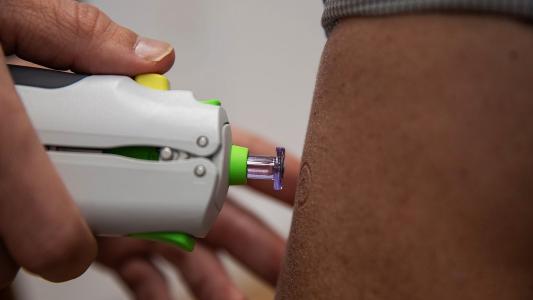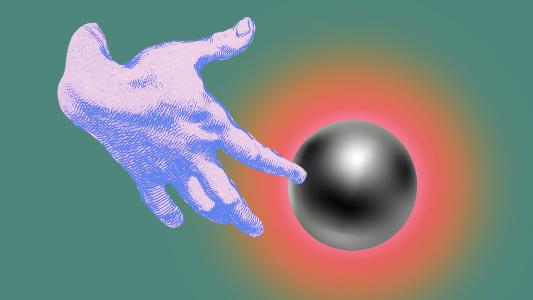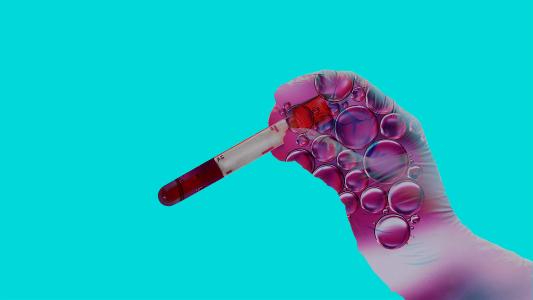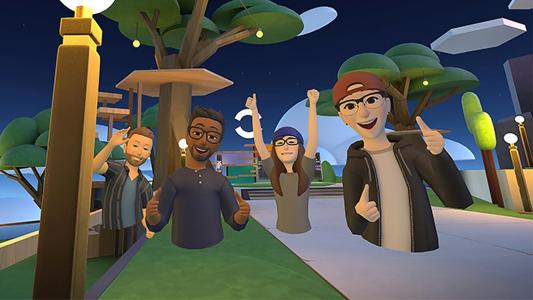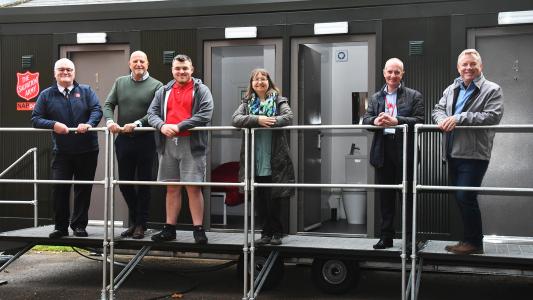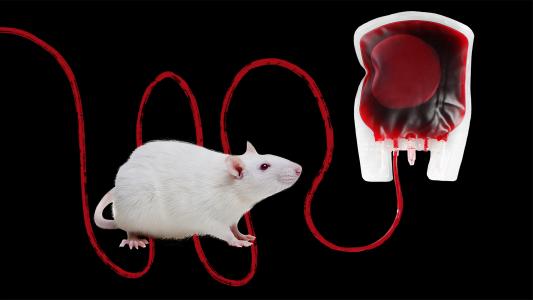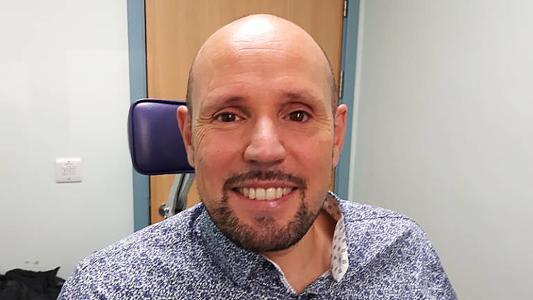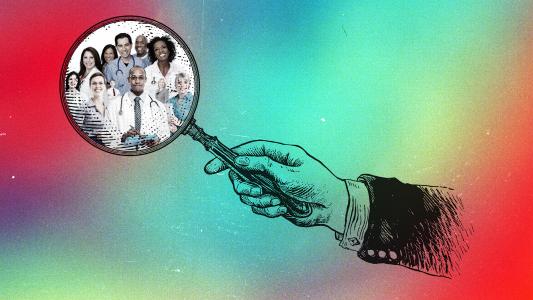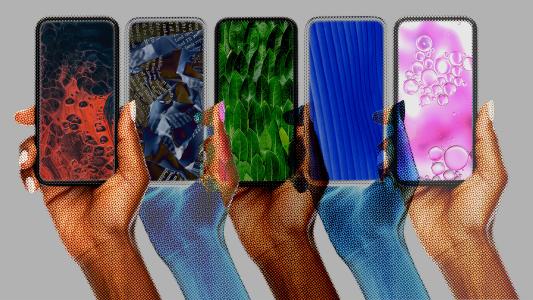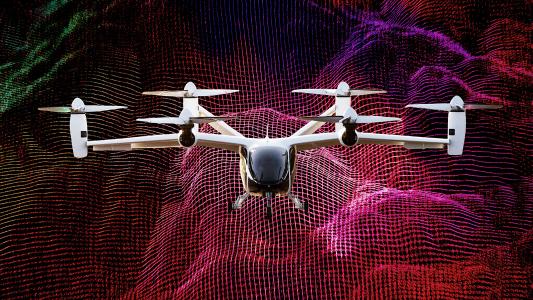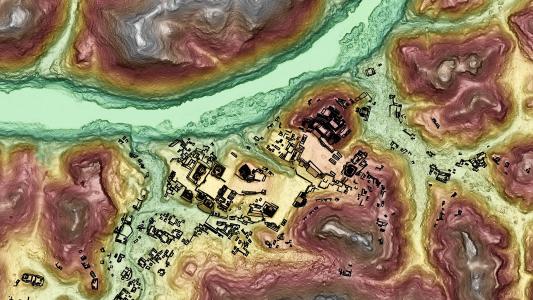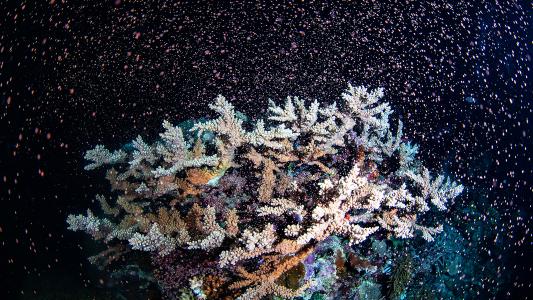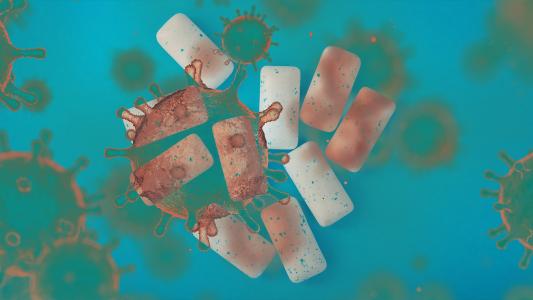Pig kidneys transplanted into body of brain-dead man
A brain-dead man was the recipient of two pig kidneys — a groundbreaking transplant that could help bring the organ shortage to an end.
Beet juice “blood” is a potent way to kill mosquitoes
Molecular Attraction plans to kill mosquitoes transmitting malaria by tricking them into drinking beet juice “blood” laced with toxins.
Scientists discover possible precursor to a Parkinson’s drug
Scientists have optimized a peptide known to prevent the “protein misfolding,” that causes Parkinson’s disease. This could be a precourser to a disease treatment.
Delivery robots get airbags to protect you in case of collision
Autonomous vehicle maker Nuro has added external airbags to its autonomous delivery robots to protect pedestrians.
You can finally order free COVID-19 tests online
Every American household can now request four free COVID-19 tests from the U.S. government using a newly launched website.
See a futuristic flying car’s first untethered flight
A prototype of a futuristic flying car developed by Bellwether Industries has completed its first untethered test flights.
Morning glories may be a source of new psychedelics and medicines
Researchers have found that the symbiotic relationship between a fungus and a morning glory holds the potential for new psychedelic compounds and medicines.
Clay from kitty litter pulls methane emissions from air
A new technology for reducing methane emissions in the atmosphere relies on zeolite, a cheap, abundant clay found in cat litter.
Chinese lander finds first onsite evidence of water on the moon
The first onsite evidence of water on the moon suggests that subterranean lunar rock contains larger stores than can be found on the surface.
New personal robot carries stuff around your house
A personal robot that carries items between different parts of a home is helping people with mobility issues live more independently.
Surgeons transplant pig heart into Maryland man
A pig heart is now beating in the chest of a man in Maryland, marking a huge step forward for xenotransplantation research.
Here is how your brain understands one voice in a crowd
Researchers from the University of Rochester Medical Center have discovered fresh insight into how the brain might deliberately hear one speaker while shutting out or ignoring another.
China builds “artificial moon” on Earth
China’s artificial moon, which uses magnets to mimic lunar gravity, could help with the creation of future moon colonies.
These solar panels are thinner than a piece of paper
Stanford University researchers announced they had achieved record efficiencies in a promising class of new materials for solar cells — which can be thinner than a piece of paper.
Microsoft posts video of DIY laptop teardown
In response to pressure from right-to-repair advocates, Microsoft has released a new teardown video for its Surface Laptop SE.
Startup will send prized artifacts to the International Space Station
Uplift Aerospace will transport valuable goods to the ISS and house them in their Constellation Vault starting this year.
Traditional Thai cannabis cooking is back on the menu
Cannabis cooking has long simmered in Thailand. With the ruling junta’s new drug policies, the traditional dish is now making its way onto restaurant plates.
Using robotic fish to harness the “ecology of fear”
To fight an invasive fish threatening Australia’s critically endangered freshwater natives, researchers are looking to robotic predators — and the “ecology of fear” they create.
Cities are using beets to deice streets this winter
Cities across the U.S. are exploring less damaging rock salt alternatives — and beet juice is one of the most promising.
Researchers are testing neural stimulation as a long COVID treatment
Small pilot trials of two different types of external electrical brain stimulation suggest the technique may work as a long COVID treatment.
Disney creates “Virtual World Simulator” for its theme parks
Disney’s new “Virtual World Simulator” would let theme park visitors interact with 3D digital elements without the use of AR goggles.
Smart food packaging keeps food fresh and reduces waste
A new "smart" type of food packaging promises to eliminate food poisoning by emitting chemicals that reduce harmful bacteria like E.coli, Salmonella, and Listeria, allowing meat, fish, fruit, and vegetables to last longer.
Goodyear puts airless tires on Starship delivery robots
Goodyear’s airless tires are now being used by a fleet of Starship's autonomous delivery robots on a college campus in the U.S.
Astronomers have found the biggest group of rogue planets yet
Using ground telescopes and satellite observations taken over decades, researchers have identified the largest number of wandering rogue planets yet.
Earthships: The sustainable buildings made from trash
Interest in Earthships, a type of off-the-grid home built from old tires, is picking up as people look for ways to live more sustainably.
John Deere unveils its first fully autonomous tractor
John Deere has just debuted an autonomous tractor it plans to sell in 2022 — bringing the self-driving tech into the mainstream.
Researchers find a new target for a universal flu vaccine: the “anchor”
There’s a new target in the battle for a universal flu vaccine: the "anchor,” a part of the virus’ proteins less likely to mutate.
This battery may solve renewables’ energy storage problem
Flow batteries are a type of liquid battery that has the potential for large-scale, long-term energy storage. Researchers have found a new material for flow batteries and it looks a lot like molasses.
SpaceX’s Starship is ready for its first trip into space
SpaceX's Mars-bound Starship — the largest spacecraft ever built — is expected to undergo its first orbital test flight in March 2022.
Diminished reality flips the script on AR
Fittingbox’s Frame Removal uses diminished reality to help people pick out new eyeglasses — but the tech’s potential extends far beyond the bridge of your nose.
What HIV & Amish DNA can tell us about staying healthy longer
Northwestern University has launched a new longevity research center where scientists will look for ways to combat biological aging.
Habitat for Humanity builds 3D-printed home in 28 hours
Habitat for Humanity has turned over the keys to its first 3D-printed home, which was built more quickly and cheaply than its typical houses.
India authorizes “world’s COVID-19 vaccine,” created in Texas
India has just become the first nation to authorize a cheap and easy to manufacture new COVID-19 vaccine called Corbevax.
MIT is testing a levitating space rover
MIT engineers have designed a levitating space rover that could allow us to explore parts of the moon that are too rough for rolling rovers.
HIV prevention injection approved by FDA
The FDA has approved Apretude, an HIV prevention injection that replaces daily PrEP pills with a single shot every 60 days.
Batteries of the future could be made from trees
To improve battery life and safety, while maintaining ionic conductivity, researchers aim to replace the liquids commonly used in batteries with a solid material made from trees.
Chatting with my own HereAfter
HereAfter AI’s Legacy Avatar is an AI-powered digital twin. But what’s it like to talk to yourself?
The plans to generate electricity on the moon
Scientists at TalTech are working on solar cell technology using microcrystals that are only about the size of a grain of sand — hoping to power a moonbase.
Are colleges necessary?
Student debt, sticker price, a pandemic, and economic uncertainty has Gen Z rethinking education.
This robotics lab wants to develop the dream surgery
Chicago’s Surgical Innovation Training Lab is developing the robots, surgeons, and digital surgeries of the future.
The return of sail power
Airseas, a French startup, has just revealed a prototype automated Seawing kite. It is fitted onto a giant Airbus cargo ship and is meant to reduce carbon emissions.
How buildings can adapt to the seasons
Scientists have invented an all-season smart-roof covering that keeps homes warm in the winter and cool in the summer. It uses a phase-shifting material that doesn’t require additional electricity.
The most anticipated space missions of 2022
2022 will be a big year for space missions, with huge rocket launches, several rover rollouts, and a first-of-its-kind asteroid collision.
Reasons to be optimistic in 2022
It can be tough to feel positive after the past two years. But a closer look at the recent past provides reasons for optimism in 2022 and beyond.
5 clinical trials may bring new hope in 2022
Vaccines, gene therapies, and even an anti-aging pill: These are the clinical trial results we are looking forward to in 2022.
Top 4 biotech breakthroughs of 2021
New biotechnology breakthroughs took on viruses, parasites, and genetic diseases this year.
The future of clothing could save your life
Smart textiles may not be gaining ground with fitness gurus, but they are helping patients manage chronic conditions and preventatively monitor their health from home.
MIT is leading the hunt for life in Venus’ atmosphere
MIT is leading a privately-funded hunt for life in Venus’ clouds, scheduled to begin in 2023.
Blocking an immune system protein helped mice recover from brain injury
Blocking an immune system molecule that accumulates after traumatic brain injury could significantly reduce the injury’s detrimental effects
Should psychedelics be patented?
The issue of patents has riven the psychedelic field. A lawyer’s repository of psychedelic info may make sure the new field stays fair.
The future of AR isn’t in gaming. Here are 5 industries to watch.
Putting aside interactive filters and fantasy games, augmented reality has the potential to be a vital tool for future innovation.
I wrote the book on warp drive. No, we didn’t accidentally create a warp bubble.
The same (former) NASA engineer who previously claimed to violate Newton's laws is now claiming to have made a warp bubble. He didn't.
Passing the Turing Test: AI creates human-like text
Natural language processing tools are growing increasingly sophisticated, and OpenAI's GPT-3 just might fool you in a conversation.
New smart mailbox is built for drone deliveries
Indiana-based startup DRONEDEK has developed a smart mailbox that can automatically receive and protect goods from delivery drones.
What the ancient, alien jellyfish can tell us about the human brain
The jellyfish nervous system, revealed by glowing genes, may help unlock the secrets of how our own brain evolved.
Can artificial insemination save the ocelot?
There are fewer than 80 ocelots known to exist in the wild in the U.S. Can artificial insemination save the species?
Brain wrinkles and folds matter – researchers are studying the mechanics of how they form
Brain folding is another poorly understood mechanism of the most complex known structure in the universe.
The DMT ‘elves’ people meet while tripping
Why do so many people encounter these 'elves' after smoking large doses of DMT?
Online tree of life now connects 2.2 million living species
OneZoom is an interactive “tree of life” that lets you explore the evolutionary connections between more than two million species.
Teaching your immune system to ignore invaders
Autoimmune disorders can attack treatments. Can "reverse vaccination" keep the body at bay when necessary?
How can Moderna and Pfizer adjust vaccines for omicron? A microbiologist answers 5 questions
If the omicron variant of the coronavirus is different enough from the original variant, existing vaccines might not be as effective.
Would we still see ourselves as “human” if other hominin species hadn’t gone extinct?
It’s all well and good to discuss how our humanity evolved – but what even is humanity?
IBM and Samsung unveil breakthrough microchip design
IBM and Samsung have unveiled a new microchip design that promises radically faster, more efficient semiconductor chips.
A papyrus reveals how the Great Pyramid was built
The papyrus contains an eye-witness account of the gathering of materials for the Great Pyramid.
No, NASA’s Parker Solar Probe didn’t “touch the Sun”
How can you "touch the Sun" if you've always been inside the solar corona, yet will never reach the Sun's photosphere?
NASA tosses rockets to prepare for Mars sample return
NASA is developing a system for the Mars Sample Return mission that tosses a rocket into the air just prior to ignition on Mars.
Microbots in your blood could help destroy cancer
Shape-shifting, magnetic microbots could become assassins for cancer — destroying tumors without the usual collateral damage on the rest of the body.
These robotic suits supercharge human workers
This new wearable robotic suit from German Bionic, can boost human strength, and it is powered by artificial intelligence
World-class choir performs advent carols in VR
The Church of England is releasing performances of advent carols in virtual reality to bring Christmastime to social-distancing parishioners.
Dead bodies keep moving for more than a year after death, study finds
Australian scientists found that bodies kept moving for 17 months after being pronounced dead.
Solar powered cars could soon hit the streets — but can they be efficient enough to go mainstream?
If they work, solar-powered cars could be great for the environment. Here's the startups working to make that happen.
Viral TikTok recipes fill the menu at virtual restaurants
The new virtual restaurant TikTok Kitchen will feature menu items inspired by viral TikTok recipes, including baked feta pasta.
This startup is ready to make electric flight a reality
After years of preparation, Washington-based startup Eviation is ready to lead the charge to electric flight.
Floating drones mine carbon data in the Gulf Stream
Saildrone has deployed three vessels into the Gulf Stream this winter to collect data on carbon uptake.
Gene editing could spare countless animals by creating single-sex litters
Scientists have created single-sex litters of mice using gene editing. This work could spare countless animals from needless death, improving animal wellbeing in both scientific research and agriculture.
Citizen keepers are raising threatened grasshoppers
The large marsh grasshopper risks extinction. But volunteer citizen keepers are raising the insect for rewilding to newly restored wetlands.
Inside the world’s most advanced cultivated meat facility
UPSIDE Foods (formerly Memphis Meats) is offering consumers tours of “the world’s most advanced cultivated meat production facility.”
Frontline healthcare workers are going to receive psilocybin therapy
University of Washington researchers are enrolling healthcare workers now in a psilocybin-assisted therapy study.
Sun-powered soft robot could mop up the seas
Inspired by steam engines and water-walking insects, this soft robot may one day mop up oil spills at sea.
Water on Mars found hidden in massive canyon
Scientists have discovered a huge store of hidden water on Mars, and it’s just below the surface of the Valles Marineris canyon system.
Can we get blockchains to talk to each other?
Blockchains do more than crypto; logistics, contracts, and more use the tech. But there’s a problem: blockchain communication is still difficult.
The Hubble Space Telescope is dying. Here’s what’s next.
With Hubble living on borrowed time, NASA and its partners prepare to launch the satellite's successor: the James Webb Space Telescope.
These supergrids are uniting the world’s clean energy supplies
Europe is creating a supergrid across regions, countries, and oceans to smooth out the fluctuations in energy suppliers — and hopefully build more resilient power systems.
Clever sleeping bag design might save astronauts’ eyesight
A sleeping bag designed for use in microgravity could protect astronauts’ vision by pulling eyeball-deforming fluids away from their brains.
Autonomous Ford delivers produce, milk to food insecure seniors
An autonomous shuttle developed by Ford delivers fresh produce and milk to food insecure seniors in Detroit as part of a new pilot program.
Needle-free COVID-19 vaccine is in human trials
A needle-free COVID-19 vaccine now in human trials could protect us against both this disease and future coronavirus outbreaks.
Edison and Dali’s “creative nap” trick seems to actually work
Briefly entering the hypnagogic state appears to boost creative thinking, just like Thomas Edison and Salvador Dalí said it would.
Blood and stool samples from 1980s link HIV to gut microbiome
A person’s chances of getting HIV appears to be influenced by the gut microbiome, suggesting it might help us prevent the disease.
Paris to make the Seine River swimmable for the Olympics
Paris’ plan to make its iconic Seine River swimmable for the 2024 Summer Olympics could help other cities clean up their own waterways.
We can now explore Meta’s first virtual world
Meta (formerly Facebook) has opened up access to Horizon Worlds, its virtual world for the metaverse, to all adults in the U.S. and Canada.
UK trials “NAPpads” to help rough sleepers survive the winter
A pilot project to combat homelessness could help rough sleepers not only survive this winter, but maybe even get off the streets for good.
Why do “young blood” transfusions help aging mice?
Young blood transfusions may combat signs of aging in older mice by increasing the production of a specific protein: Klotho.
UK man receives world’s first 3D-printed prosthetic eye
U.K. researchers have developed a 3D-printed prosthetic eye that’s more realistic and easier to produce than traditional ones.
Google rolls out new tools to help your doctor search
Google has debuted new ways to make your doctor search easier, allowing you to know what insurance they take and languages they speak.
This app offers alternatives to 911 in all 50 states
There are instances when 911 may not be the best number to call. Subdial, a free app, offers local and national alternatives to 911.
Paris Olympics will ignite the future of electric flying taxis
France will soon begin testing electric air taxis at a hub outside of Paris, with plans to have dedicated flying taxi routes ready in time for the Olympic Games.
The world’s first indoor saltwater farm
But Sam Norton, founder of Heron Farms, is using the world's most abundant resource — seawater — to grow sea beans.
Did drought end the ancient Maya kingdoms?
Airborne laser scans have revealed thousands of new Maya structures, as well as evidence that may change how we think their kingdoms fell.
Magical coral spawning event gives reefs renewed hope
The Great Barrier Reef just had its annual coral spawning event. Scientists say this year’s event is proof that the reef can recover.
This chewing gum traps the coronavirus
A new chewing gum may help reduce the spread of COVID-19 by neutralizing the virus before it can leave an infected person’s mouth.
